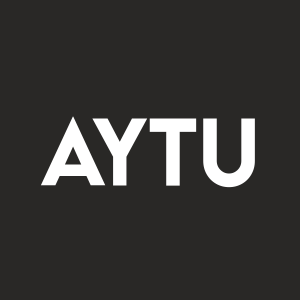Aytu BioPharma Adds Late-Stage Pediatric Onset Rare Disease Asset to Development Pipeline from Rumpus Therapeutics
Rhea-AI Summary
Aytu BioPharma has secured a global license for AR101 (enzastaurin), targeting vascular Ehlers-Danlos Syndrome (vEDS), a severe genetic disorder lacking FDA-approved treatments. The company paid $1.5 million upfront, with potential milestone payments up to $67.5 million contingent on regulatory and commercial achievements. Two co-founders from Rumpus Therapeutics, Christopher Brooke and Nate Massari, are joining Aytu's executive team to lead the AR101 program. The acquisition aligns with Aytu's strategy to enhance its portfolio in pediatric specialty pharmaceuticals.
Positive
- Aytu acquired AR101 (enzastaurin) for $1.5 million upfront, with potential milestone payments of up to $67.5 million.
- The addition of AR101 enhances Aytu's portfolio, targeting a rare disease with no current FDA-approved treatments.
- Experienced leaders from Rumpus will join Aytu's team, strengthening management in pediatric rare diseases.
Negative
- The program is in early stages and depends on the success of clinical trials to secure FDA approval.
News Market Reaction – AYTU
On the day this news was published, AYTU declined 5.39%, reflecting a notable negative market reaction.
Data tracked by StockTitan Argus on the day of publication.
- Aytu gains global license to pivotal study-ready protein kinase C β isoform (PKCβ) inhibitor, AR101 (enzastaurin) in rare disease indications
- Program initially targeting vascular Ehlers-Danlos Syndrome (vEDS), a rare inherited connective tissue disorder resulting in high morbidity and a significantly shortened life span with no FDA-approved treatments
- Rumpus co-founders Christopher Brooke and Nathaniel Massari to join Aytu executive team with responsibility for AR101 program and development of pediatric onset rare disease pipeline
- Company to host conference call today at 4:30 PM ET
ENGLEWOOD, CO / ACCESSWIRE / April 12, 2021 / Aytu BioPharma, Inc. (NASDAQ:AYTU), a specialty pharmaceutical company focused on commercializing novel therapeutics and consumer healthcare products, today announced the acquisition of a global license to AR101 (enzastaurin), a pivotal study-ready therapeutic candidate initially targeting the treatment of vascular Ehlers-Danlos Syndrome (vEDS) from Rumpus Therapeutics (Rumpus), a privately-held biopharmaceutical company focused on the treatment of pediatric onset rare and orphan diseases. vEDS is a rare genetic disorder typically diagnosed in childhood and characterized by arterial aneurysm, dissection and rupture, bowel rupture and rupture of the gravid uterus. There are currently no U.S. Food and Drug Administration (FDA)-approved treatments for vEDS.
"This acquisition positions us to greatly accelerate our growth plans both through the addition of this novel rare disease asset to our development pipeline, as well as the expansion of our management team with co-founders Topher Brooke and Nate Massari joining the team. As we seek to expand our high-value pipeline of late-stage assets, and grow our commercial products, this milestone further solidifies our position as a leading pediatric specialty pharmaceutical company," commented Josh Disbrow, Chief Executive Officer of Aytu BioPharma. "The AR101 program is expected to progress directly to a single pivotal study, and the Rumpus team has employed numerous strategies in the development plan to minimize clinical risk associated with the trial. We are greatly encouraged by the potential speed to FDA approval, especially as we believe it can provide much needed hope for vEDS patients and their families."
"I'm excited to get to work on this important late-stage program and draw from the deep expertise of both Topher and Nate. Both of these executives have distinguished careers in rare disease, business development, and strategic planning across a range of leading pharmaceutical companies and I'm pleased to welcome them to the Aytu team," continued Mr. Disbrow.
Terms of the Transaction
Under the terms of the transaction, Aytu has acquired the vEDS enzastaurin program of Rumpus and all associated intellectual property for
Rumpus Therapeutics co-founders and principal executive officers, Topher Brooke and Nate Massari, will join the Aytu executive team and report to CEO, Josh Disbrow. Both Mr. Brooke and Mr. Massari will lead all aspects of the AR101 vEDS program and the further development of the Company's pediatric onset rare disease pipeline.
Nate Massari has more than 20 years of healthcare experience in consulting, in-line marketing and sales, pipeline marketing, corporate strategy, sales management and corporate development across the pharmaceutical, biotech, device, health services, and distribution industries. He began his career in management consulting within the Health & Life Sciences practice at Accenture. Nate also held various leadership roles at Johnson & Johnson, AstraZeneca, Endo Pharmaceuticals, and AmerisourceBergen. He has completed numerous business development transactions totaling over
Christopher "Topher" Brooke has over 20 years of general management experience in healthcare across all phases of development and commercialization. He has depth of experience from target selection and clinical development planning through running several blockbuster commercial pharmaceutical franchises. He has worked across several modalities (proteins, small molecules and vaccines) and across multiple therapeutic areas. Topher has held roles of increasing responsibility at Johnson & Johnson, AstraZeneca, and AmerisourceBergen. His rare disease experience includes launching pediatric inflammatory bowel disease indications while at Johnson & Johnson as well as leading the pediatric infectious disease franchise at AstraZeneca. Topher went on to lead the fully integrated Diabetes Division at AstraZeneca. Most recently, Topher co-founded Rumpus Therapeutics to develop new medicines for pediatric onset rare and orphan diseases. Topher has a BA from Colgate University and an MBA from the Wharton School at the University of Pennsylvania.
The landmark research supporting AR101 was conducted by Dr. Hal Dietz, Professor of Genetic Medicine at Johns Hopkins University School of Medicine and an Investigator at the Howard Hughes Medical Institute.
"I have dedicated my career to researching and treating patients with connective tissue disorders, and these efforts include vascular Ehlers-Danlos Syndrome and Marfan Syndrome. In particular with vEDS, patients face catastrophic vascular events without warning. There are no currently approved therapies, but our research has shown that a clear pathway exists to potentially beat this disease. Our aim is to prove that in a well-controlled clinical trial, which we hope will be underway soon," commented Dr. Hal Dietz.
Dr. Josephine Grima, Chief Science Officer of The Marfan Foundation, and Katie Wright, Director of The VEDS Movement, a division of the Foundation, added, "The unmet need for people with VEDS is massive. Many of these individuals find out they have the condition via genetic testing after suffering severe medical complications, and some find out after losing family members who weren't even diagnosed yet. Currently, there are no therapies proven to prevent the life-threatening emergencies that can occur. We are thrilled to partner with Aytu by providing education and awareness to physicians, patients and families to help maximize the success of this trial."
Lara Bloom, CEO of the Ehlers-Danlos Society added, "This community is thirsting for additional research across all types of Ehlers-Danlos Syndromes. It's also a mobilized and well-connected community that is excited to participate in advancing research and clinical development."
About vascular Ehlers-Danlos Syndrome (vEDS)
Vascular Ehlers Danlos Syndrome (vEDS) is the severe subtype of Ehlers-Danlos Syndrome, affecting 1 in 50,000 people worldwide and results from pathogenic variants in the COL3A1 gene, which encodes the chains of type III procollagen, a major protein in vessel walls and hollow organs. Twenty-five percent of vEDS patients have a first complication by the age of 20 years, and more than eighty percent have at least one complication by the age of 40. vEDS is a devastating condition, and vEDS patients have a median lifespan of 51 years. There are no FDA-approved therapies for vEDS.
About AR101 (enzastaurin)
AR101 (enzastaurin) is an orally available investigational first-in-class small molecule, serine/threonine kinase inhibitor of the PKC beta, PI3K and AKT pathways. AR101 has been studied in more than 3,300 patients across a range of solid and hematological tumor types. Dr. Hal Dietz developed the first preclinical model that mimics the human condition and recapitulates vEDS. This knock-in model has the same genetic mutation most prevalent in vEDS patients and is representative of the human condition in both the timing and location of vascular events. The model has generated identical structural histology and mechanical characteristics, and unbiased findings demonstrated that structure alone does not lead to vascular events. Objective comparative transcriptional profiling by high-throughput RNA sequencing of the aorta displayed a molecular signature for excessive PKC/ERK cell signaling that is the driver of disease. PKC inhibition proved efficacious in multiple pre-clinical models and indeed prevented death due to vascular rupture.
Pivotal Phase 3 studies for both newly-diagnosed diffuse large B-cell lymphoma (DLBCL) and GBM are currently being conducted by Denovo Biopharma LLC, enzastaurin's owner. Enzastaurin received orphan drug designation in DLBCL and glioblastoma multiforme (GBM) from the FDA and EMA. In July 2020, the FDA granted enzastaurin Fast Track qualification for the first-line treatment of GBM. Through this transaction Aytu has secured exclusive global rights to enzastaurin/AR101 from Denovo Biopharma LLC in the fields of rare genetic pediatric onset or congenital disorders outside of oncology. The Company expects to receive Orphan Drug Designation for AR101, allowing for seven years' marketing exclusivity in the United States and ten years in Europe and Japan. AR101 is protected by a suite of pending patents being pursued in major markets globally which have been licensed from The Johns Hopkins University and have an earliest priority date of March 2017.
Conference Call & Webcast (with Slides)
Aytu will host a conference call and webcast this afternoon, Monday, April 12, 2021 at 4:30 p.m. Eastern Time. Josh Disbrow, Chief Executive Officer of Aytu BioPharma, and Dr. Hal Dietz will discuss the Rumpus transaction and the AR101 scientific background, and they will be available to answer questions. Interested participants and investors may access the conference call by dialing (877) 407-9124 (U.S./Canada) or (201) 689-8584 (international). A live webcast presentation can also be accessed via the Investors section of the Aytu BioPharma corporate web site at: https://www.aytubio.com.
About Aytu BioPharma, Inc.
Aytu BioPharma is a specialty pharmaceutical company with a growing commercial portfolio of prescription therapeutics and consumer health products. The company's primary prescription products treat attention deficit hyperactivity disorder (ADHD) and other common pediatric conditions. Aytu markets ADHD products Adzenys XR-ODT® (amphetamine) extended-release orally disintegrating tablets (see Full Prescribing Information, including Boxed WARNING), Cotempla XR-ODT® (methylphenidate) extended-release orally disintegrating tablets (see Full Prescribing Information, including Boxed WARNING), and Adzenys-ER® (amphetamine) extended-release oral suspension (see Full Prescribing Information, including Boxed WARNING). The company's other pediatric products include Karbinal® ER (carbinoxamine maleate), an extended-release carbinoxamine (antihistamine) suspension indicated to treat numerous allergic conditions, and Poly-Vi-Flor® and Tri-Vi-Flor®, two complementary fluoride-based prescription vitamin product lines containing combinations of fluoride and vitamins in various formulations for infants and children with fluoride deficiency. The company's evolution has been driven by strategic in-licensing, acquisition-based transactions and organic product growth. As Aytu continues this trajectory, the company is building a complimentary therapeutic development pipeline that will address significant unmet needs. For more information, please visit aytubio.com.
About Rumpus Therapeutics
Rumpus Therapeutics is a private, specialty biopharmaceutical company dedicated to advancing innovative science for neglected pediatric diseases. Rumpus Therapeutics is focused on drug development for rare and orphan diseases that predominantly have pediatric onset and for which there are no currently approved therapies. For additional information please visit www.rumpustx.com.
Forward-Looking Statements
This press release includes forward-looking statements within the meaning of Section 27A of the Securities Act of 1933, as amended, and Section 21E of the Securities Exchange Act of 1934, or the Exchange Act. All statements other than statements of historical facts contained in this press release, are forward-looking statements. Forward-looking statements are generally written in the future tense and/or are preceded by words such as ''may,'' ''will,'' ''should,'' ''forecast,'' ''could,'' ''expect,'' ''suggest,'' ''believe,'' ''estimate,'' ''continue,'' ''anticipate,'' ''intend,'' ''plan,'' or similar words, or the negatives of such terms or other variations on such terms or comparable terminology. All statements other than statements of historical facts contained in this presentation, are forward-looking statements, including but not limited to any statements regarding the results and effects of the Rumpus asset purchase, future opportunities for the newly constituted company, future financial performance and condition, guidance and any other statements regarding the newly constituted company's future expectations, beliefs, plans, objectives, financial conditions, assumptions or future events or performance including clinical trial results. These statements are just predictions and are subject to risks and uncertainties that could cause the actual events or results to differ materially. These risks and uncertainties include, among others: potential adverse changes to our business, including those resulting from the completion of the Rumpus transaction, the diversion of management time on transaction-related issues, the ultimate timing, outcome and results of integrating the operations and personnel of Rumpus, the effects of the acquisition of the Rumpus assets, including the combined company's future financial condition with the addition of these assets, results of operations, strategy and plans, changes in capital markets and the ability of the combined company to finance operations in the manner expected, risks relating to gaining market acceptance of our products, obtaining reimbursement by third-party payors, the potential future commercialization of the combined company's product candidates, the anticipated start dates, durations and completion dates, as well as the potential future results, of the combined company's ongoing and future clinical trials, the anticipated designs of the combined company's future clinical trials, anticipated future regulatory submissions and events, the combined company's anticipated future cash position and future events under current and potential future collaboration. We also refer you to (i) the risks described in ''Risk Factors'' in Part I, Item 1A of Aytu's Annual Report on Form 10-K and in the other reports and documents it files with the Securities and Exchange Commission and (ii) the Risk Factors set forth in Aytu's Annual Report on Form 10-K and Quarterly Reports on Form 10-Q filed with the SEC.
Contact for Media and Investors:
Sarah McCabe
Stern Investor Relations, Inc.
sarah.mccabe@sternir.com
SOURCE: Aytu BioPharma, Inc.
View source version on accesswire.com:
https://www.accesswire.com/639869/Aytu-BioPharma-Adds-Late-Stage-Pediatric-Onset-Rare-Disease-Asset-to-Development-Pipeline-from-Rumpus-Therapeutics







